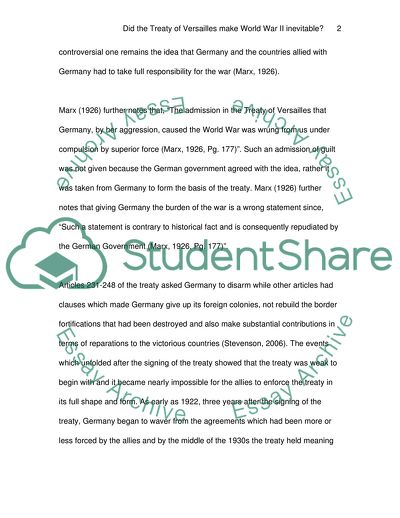Cite this document
(Treaty of Versailles and World War II Essay Example | Topics and Well Written Essays - 2000 words - 3, n.d.)
Treaty of Versailles and World War II Essay Example | Topics and Well Written Essays - 2000 words - 3. https://studentshare.org/history/1711235-did-the-treaty-of-versailles-make-world-war-ii-inevitable
Treaty of Versailles and World War II Essay Example | Topics and Well Written Essays - 2000 words - 3. https://studentshare.org/history/1711235-did-the-treaty-of-versailles-make-world-war-ii-inevitable
(Treaty of Versailles and World War II Essay Example | Topics and Well Written Essays - 2000 Words - 3)
Treaty of Versailles and World War II Essay Example | Topics and Well Written Essays - 2000 Words - 3. https://studentshare.org/history/1711235-did-the-treaty-of-versailles-make-world-war-ii-inevitable.
Treaty of Versailles and World War II Essay Example | Topics and Well Written Essays - 2000 Words - 3. https://studentshare.org/history/1711235-did-the-treaty-of-versailles-make-world-war-ii-inevitable.
“Treaty of Versailles and World War II Essay Example | Topics and Well Written Essays - 2000 Words - 3”. https://studentshare.org/history/1711235-did-the-treaty-of-versailles-make-world-war-ii-inevitable.


